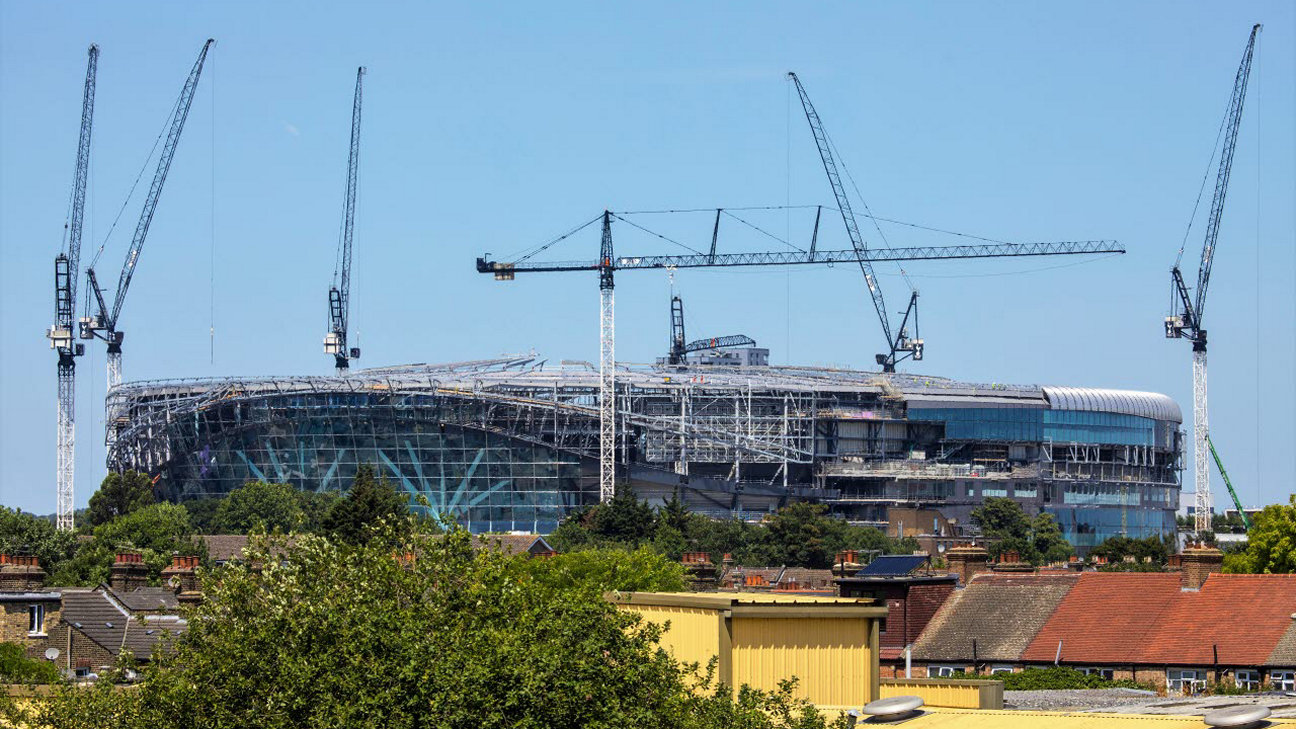No, surveyors do not have to have RICS credentials, and there are many who follow RICS standards and regulations without having chartered status. However, many large construction employers may only choose to work with chartered surveyors because of their guaranteed professionalism and specialist knowledge.
Surveyors shape the way we live. From our towns and cities to our streets and homes, they help create safer, better, happier communities.
More than 100 different types of surveyor in property, land construction and infrastructure keep traffic flowing, water running and people moving. They shape our roads, bridges and tunnels, our skyscrapers, stations and stadiums. They shape our futures too, regenerating deprived areas and planning smart cities, while pioneering safer, more sustainable and more environmentally friendly building methods.
But what exactly does a surveyor do each day? To understand more about this valuable profession – from the different types of surveying in each sector to typical job descriptions and average salaries – keep reading.
“Construction underpins every other business on this planet. For example, in the context of climate change, cement manufacture accounts for 8% of global CO2 emissions. If we addressed that, we could make a huge difference. We don’t want the best talent to go into law or banking, come and shape the world we live in.”

Fred Mills
The B1M – the world’s most popular construction video channel
What do surveyors do on a day-to-day basis?
The role of a surveyor is to guide construction and development projects, and to provide professional advice on matters such as the structural integrity of a property or its value.
As a surveyor, you’ll work closely with a range of other professionals such as architects and engineers, bankers and ecologists, town planners and property developers. You’ll also have access to the latest technologies in your chosen field: for example, you could be involved in flying drones to map land and measure buildings, creating virtual reality models of buildings, or using big data to tackle global issues such as climate change, migration and urbanisation.
Other activities typically found in surveyors’ job descriptions could include:
- ensuring that new-build properties comply with building regulations, accessibility specifications and health and safety requirements
- assessing structural damage and recommending building repairs
- advising on the energy efficiency and environmental impact of a property
- inspecting buildings for insurance purposes and ensuring they meet relevant legal requirements
- researching land records and other sources of information that may relate to a property
- advising clients on boundary disputes, planning applications and the maintenance of existing structures
- managing budgets and dealing with conservation or improvement grants, and
- planning conservation projects for historic buildings.

Laura Collins, Young Surveyor of the Year
"I’m lead consultant on a project in Amsterdam for an Australian client: so, I’m liaising across time zones. I like getting out into the world. I find it fascinating to see how other countries approach construction and to expand my knowledge."
What are the different types of surveying?
Surveying is a diverse profession, so surveyors often choose to specialise in a particular discipline because each role carries many distinct responsibilities. If you’re looking to start a career in surveying, it’s good to be aware of the different types of surveyor and what they do in their respective sectors.
Surveying roles in construction and infrastructure
- Building surveyors help create and supervise everything from towering skyscrapers to simple home extensions.
- Project management surveyors run teams to deliver projects on time and on budget.
- Quantity surveyors assess the financial impact and profitability of construction projects.
- Building control surveyors design and manage the use of buildings to make sure they comply with laws and regulations.
- Infrastructure surveyors specialise in the project and cost management of civil engineering projects, including road, rail and utilities investments.
“I act as a consultant on the costing and budgeting for new building projects. My role needs all sorts of skills, from finance and project management to communication and teamwork, to get the building from the page to being physically built. The opportunities in this industry are endless.”

Richard Owen
Quantity surveyor and Business Management graduate
Surveying roles in property
- Property surveyors value, sell, rent and manage all types of housing and businesses, from offices to shops and restaurants.
- Valuation surveyors analyse and measure the value of buildings or businesses: for example, how much is Google actually worth?
- Management consultancy surveyors maximise business performance by running operations, strategies and structures.
- Facilities management surveyors add value to businesses by creating vibrant, productive workplaces.
“I work across the UK and Europe with valuation portfolios in excess of £1billion, providing essential advice to banks, fund managers and property companies.”
Stephen Todd
Valuation surveyor
Surveying roles in land
- Geomatics surveyors map, analyse and interpret spatial data and information about the land, sea and buildings.
- Environmental surveyors manage the development and use of land to minimise the impact on the environment.
- Minerals and waste surveyors extract, mine, use and manage natural resources and then plan the disposal of related waste.
- Rural surveyors value and manage the use of land and buildings in the countryside.
- Planning and development surveyors help create the towns and cities of the future, ensuring happier, healthier communities.
“I use cutting-edge technology on a daily basis, like flying drones to capture ultra-high accuracy aerial photogrammetry. Geospatial surveying is at the forefront of the profession and it’s really growing, so there are huge opportunities to work in the UK and abroad.”
Charlton Bland
Geospatial surveyor
Average surveyor salary: How much could you earn?
Your wage as a surveyor will depend on factors such as your qualifications, level of experience, the sector you work in and your specialism, location and employer. However, the average surveyor salary in the UK stands at £37,022 as of June 20221.
Trainees and graduate surveyors can expect between £15,000 and £27,000 depending on experience. For example, the average graduate surveyor salary in 2022 was £26,5652, while it was £21,921 for the average trainee3.
In the RICS 2019 Rewards and Attitudes Survey, it was reported that professionals with RICS membership earned a base salary 38% higher than non-chartered professionals. Discover what you can expect to earn as a chartered surveyor in our guide.
Richard Serra and the new Spurs stadium

The stadium development has created 2,000 full-time local jobs
"I chose a career in the built environment to make positive change and there is nothing more satisfying than seeing a building through from the first concept sketches to seeing it occupied and enjoyed."
“There will always be a need for buildings to live, work and play in, but with Earth’s resources becoming ever-more scarce, there is a huge opportunity for surveyors to play key roles in sustainable development.”
Richard Serra MRICS
Head of Planning, Tottenham Hotspur FC
Frequently asked questions about what surveyors do
Surveying is a truly diverse profession that offers the opportunity to expand your skill set, and the satisfaction of having a lasting impact on the world and its communities. With a far-reaching global network of surveyors and the continual growth of the built environment, the demand for professionals in all areas is high.
Aside from securing chartered status, the best surveyors aren’t just technically competent, but can confidently lead successful construction projects and build strong, sustainable relationships with clients and colleagues. Surveyors must also be able to communicate clearly with informed and less-informed clients, as well as presenting accurate reports of key findings.
No, you don’t have to get a degree to become a surveyor. If the traditional university route isn’t for you, an alternative way to qualify at an industry-recognised level is through a surveying apprenticeship. Whether you choose an advanced apprenticeship course or one that leads to a degree qualification, an apprenticeship is a great way to gain work experience while you study.
Surveying plays a vital role in developing the modern world. From highways and bridges to buildings and pipework, surveyors don’t just shape the built environment by developing new technology, tackling global issues and promoting sustainable construction. They also help shape our lives, communities and our futures.
Surveyors typically spend most of their time in offices - conducting essential activities like researching land records, analysing field data and writing reports, and preparing legal documents and contracts. Alongside indoor work, field work is expected, which could require commuting long distances or spending time on-site for the duration of a project. This field work means working outdoors or standing for extended periods to gather the findings you need to finish the job.




:1-1?$dpp-promo-small-xxl$&qlt=85,1)







